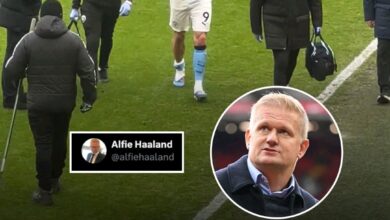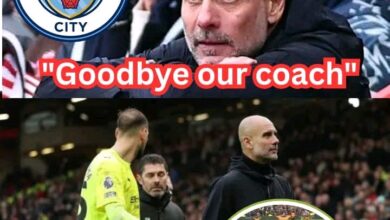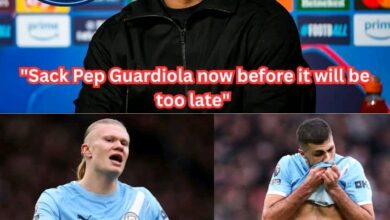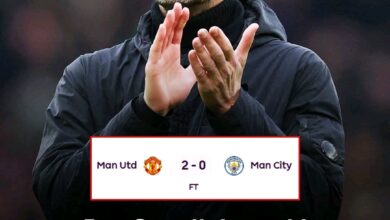Man City name their price for Jack Grealish as midfielder’s preferred transfer destination emerges ahead of summer move
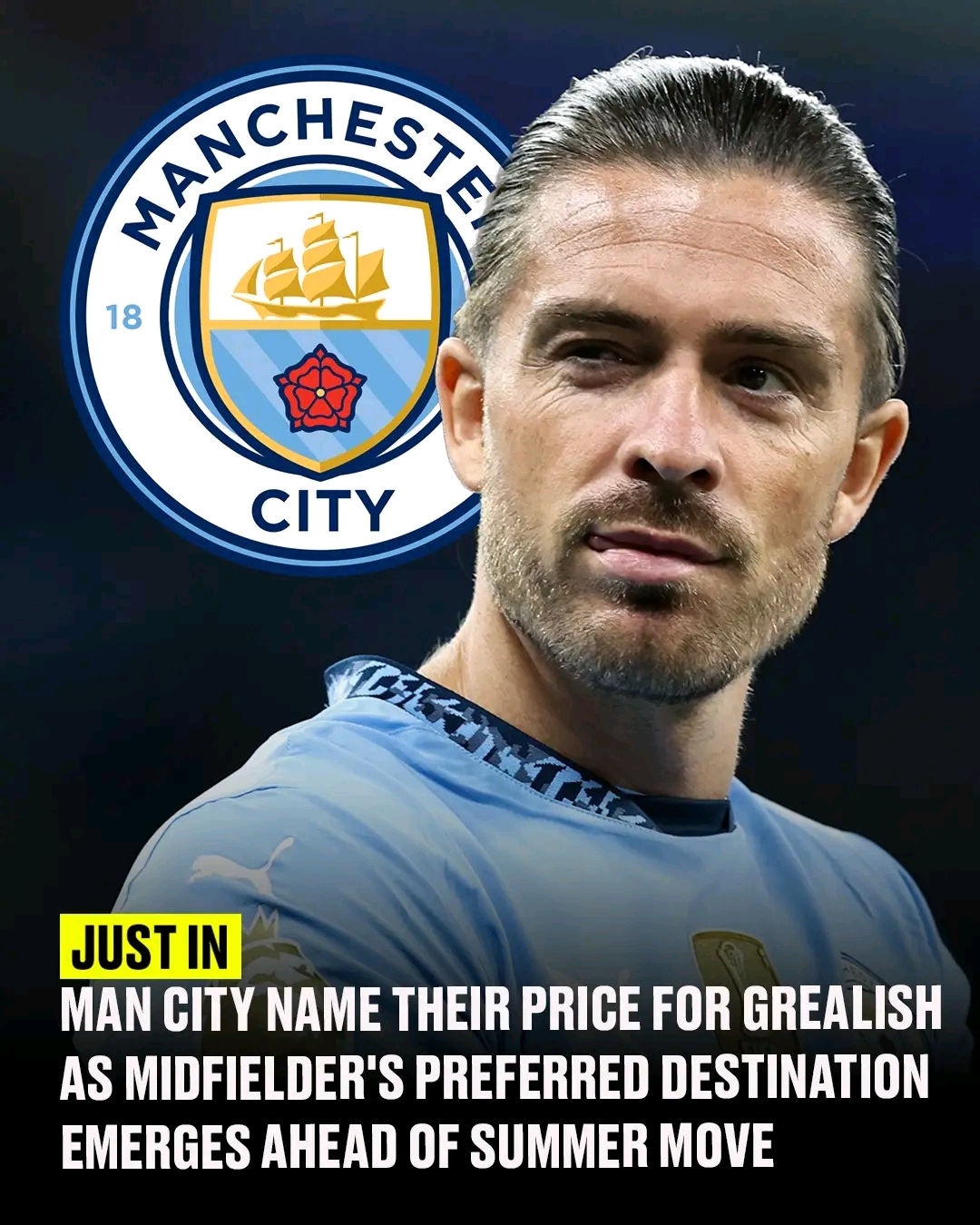
The summer transfer window is heating up, and one of the most intriguing storylines involves Manchester City’s Jack Grealish. The English midfielder, who made headlines with his record-breaking £100 million move from Aston Villa in 2021, now finds himself at the center of transfer speculation once again. With City reportedly naming their price and Grealish’s preferred destination emerging, football fans worldwide are watching closely to see where the talented playmaker will ply his trade next season.
Jack Grealish’s journey at Manchester City has been a tale of adaptation, expectation, and evolution. When Pep Guardiola’s side shattered the British transfer record to secure his services, the pressure was immense. The fee represented not just City’s faith in his abilities, but also the weight of expectation that comes with such a significant investment.
Since arriving at the Etihad Stadium, Grealish has experienced the highs and lows of elite football. His debut season saw him contribute to City’s Premier League title triumph, though his individual statistics didn’t quite match the explosive numbers he produced during his final season at Aston Villa. The transition from being the focal point of Villa’s attack to fitting into Guardiola’s intricate tactical system required significant adjustment.
The midfielder’s second season showed marked improvement as he began to understand his role within City’s setup better. Guardiola’s system demands patience, precision, and tactical discipline – qualities that don’t always showcase a player’s flair in the most obvious ways. Grealish’s ability to retain possession, draw fouls, and create space for teammates became increasingly valuable, even if the goal and assist tallies didn’t always reflect his overall contribution.
However, despite these adaptations and contributions, questions have persisted about whether Grealish represents the best fit for City’s style of play. The club’s willingness to entertain offers suggests they may be open to recouping a significant portion of their initial investment while allowing the player to find an environment where his talents can flourish more naturally
Manchester City’s approach to pricing Jack Grealish reflects both pragmatic business sense and strategic squad planning. Reports suggest the club has set a valuation that would allow them to avoid a significant loss on their initial investment while remaining realistic about current market conditions.
The transfer market has evolved considerably since 2021, with financial fair play regulations becoming increasingly stringent and clubs becoming more cautious with their spending. City’s valuation takes into account Grealish’s proven Premier League experience, his international pedigree with England, and his marketability as one of the country’s most recognizable players.
The pricing strategy also reflects City’s position of strength. Unlike clubs forced to sell due to financial pressures, City can afford to be selective about potential buyers and hold firm on their valuation. This approach ensures they maintain negotiating power while protecting their investment.
Industry insiders suggest that City’s asking price positions Grealish as one of the premium midfield options available this summer. The fee structure likely includes performance-related clauses and sell-on percentages, common features in modern high-value transfers that protect both clubs’ interests.
The timing of City’s decision to price Grealish also coincides with their broader squad refresh. With several aging stars and the need to maintain competitiveness across multiple competitions, the club may view this as an opportunity to reshape their squad while maintaining financial flexibility for future acquisitions.
The emergence of Jack Grealish’s preferred transfer destination has added another layer of intrigue to this developing story. While the specific club hasn’t been officially confirmed, industry sources suggest the midfielder has identified a destination that offers both competitive football and a system that better suits his natural playing style.
Several factors likely influence Grealish’s preference. Playing time remains crucial for any player of his caliber, especially with major international tournaments on the horizon. The midfielder will want assurance that his next move provides regular first-team football and the opportunity to showcase his abilities consistently.
The tactical setup at his preferred destination appears to offer more creative freedom than he’s experienced at City. While Guardiola’s system has its merits, some players thrive in environments that allow for more individual expression and risk-taking. Grealish’s natural instincts as a creator and dribbler may be better suited to a system that encourages these qualities.
The club culture and project vision also factor into his decision-making. Players at Grealish’s level want to be part of something ambitious, whether that’s challenging for titles, building a project, or representing a club with strong traditions and passionate support.
Location and lifestyle considerations shouldn’t be underestimated either. The move to Manchester represented a significant change for a player who spent most of his career in Birmingham. His next destination will likely factor in personal preferences regarding location, family considerations, and overall quality of life.
The transfer market for elite midfielders has become increasingly competitive, with several top clubs seeking to strengthen their creative options. Grealish’s availability has naturally attracted attention from multiple quarters, creating a dynamic situation that could benefit all parties involved.
European clubs have shown consistent interest in Premier League talent, particularly players with Grealish’s profile. His experience in England’s top flight, combined with his international recognition, makes him an attractive proposition for clubs looking to make a statement signing.
The competition for his signature extends beyond just transfer fees. Clubs must also present compelling sporting projects, demonstrate their ambition, and offer suitable terms that reflect Grealish’s status as a premium player. This multi-faceted competition often leads to creative deal structures and comprehensive packages that address various aspects of a player’s career and personal priorities.
The timing of the transfer window also plays a crucial role. Clubs operating with limited budgets must balance their spending across multiple positions, while those with greater resources can move more decisively. Grealish’s situation allows for extended negotiations and careful consideration of all options.
The ripple effects of his potential move extend beyond just the immediate transfer. Other clubs may adjust their own transfer strategies based on Grealish’s decision, potentially creating a domino effect in the midfielder market.
Jack Grealish’s potential departure from Manchester City would have significant tactical implications for both his current and future clubs. At City, his absence would remove a player who has gradually become an important component of Guardiola’s tactical setup, particularly in big games where his ability to retain possession and draw fouls proves valuable.
Guardiola has often used Grealish in various positions across the front line, taking advantage of his versatility and tactical intelligence. His departure would require either promoting existing squad members to fill these roles or identifying replacement options in the transfer market.
For his potential new club, Grealish’s arrival would likely trigger tactical adjustments to maximize his impact. His preferred position and playing style would need to be accommodated within the existing system, potentially leading to formation changes or role modifications for other players.
The midfielder’s strengths – close control, dribbling ability, and creative vision – are best utilized in systems that allow for patient build-up play and individual moments of brilliance. His new club would need to ensure their tactical approach complements these qualities while providing the support structure necessary for him to thrive.
The integration process would be crucial for success. Unlike some players who can immediately slot into new systems, Grealish’s impact often depends on developing understanding with teammates and adapting to specific tactical requirements.
The financial aspects of Jack Grealish’s potential transfer extend far beyond the initial transfer fee. For Manchester City, the deal represents an opportunity to balance their books while potentially funding other transfer activities. The accounting treatment of the transfer, including how any profit or loss is recorded, will factor into their financial planning.
From the purchasing club’s perspective, acquiring a player of Grealish’s profile requires significant financial commitment. Beyond the transfer fee, wage costs, agent fees, and additional performance-related payments create a substantial overall investment. The club’s financial fair play position and revenue streams will largely determine their ability to complete such a deal.
The broader economic impact includes commercial considerations. Grealish’s marketability and fan appeal can drive merchandise sales, sponsorship opportunities, and global brand recognition. These factors often justify higher transfer fees by providing additional revenue streams beyond on-field performance.
The deal structure will likely include various clauses protecting both parties’ interests. Performance bonuses, appearance fees, and potential sell-on clauses ensure that both clubs benefit from the player’s future success while managing financial risk.
Jack Grealish’s situation isn’t unique in modern football, where high-profile players regularly move between elite clubs in search of better opportunities or different challenges. However, his specific circumstances – moving from a record transfer that hasn’t fully materialized as expected – provide interesting parallels with other similar cases.
The history of big-money transfers shows that success isn’t guaranteed, regardless of the fee involved. Players like Philippe Coutinho, Eden Hazard, and others have experienced varying degrees of success after major moves, demonstrating the complex factors that determine transfer outcomes.
Grealish’s potential move also reflects broader trends in modern football, where player power and career management play increasingly important roles. The days of players staying at clubs for entire careers are largely gone, replaced by strategic moves designed to maximize both sporting and financial opportunities.
The precedent set by his initial move to City – and now his potential departure – may influence how other players and clubs approach similar situations. The football world watches closely to see how high-profile transfers evolve, using these cases to inform future decision-making.
As this transfer saga unfolds, all parties involved have significant considerations to weigh. For Jack Grealish, the decision represents a crucial juncture in his career. At 29, he’s entering his prime years and needs to ensure his next move positions him for sustained success both at club and international level.
Manchester City’s handling of the situation will be closely watched by other players and agents. The club’s reputation for treating players fairly while protecting their own interests could influence future transfer negotiations and player recruitment efforts.
The successful completion of such a high-profile transfer would also send signals about the current state of the transfer market. In an era of increased financial scrutiny and changing economic conditions, major deals like this one serve as barometers for the football economy’s health.
For the receiving club, should a deal materialize, the success or failure of integrating Grealish will have long-term implications for their transfer strategy and ambitions. The pressure to justify such a significant investment extends beyond just the player to the entire football operation.
Jack Grealish’s potential summer transfer represents one of the most fascinating storylines of the current window. The convergence of Manchester City’s willingness to sell, the player’s apparent desire for a new challenge, and the emergence of a preferred destination creates a compelling narrative that extends far beyond simple transfer speculation.
The situation encapsulates many of the key themes in modern football: the pressure of record transfers, the importance of tactical fit, the role of player preferences in career decisions, and the complex financial dynamics that govern elite transfers. As negotiations progress and decisions are made, this story will likely serve as a case study for how modern transfers evolve.
Whether Grealish ultimately moves or remains at City, the process itself provides valuable insights into the current state of football’s transfer market. The outcome will influence not just the immediate parties involved, but potentially set precedents for similar situations in the future.
For football fans, the drama provides compelling entertainment and debate. For the industry, it represents another data point in understanding how elite players, ambitious clubs, and financial realities intersect in the modern ga










